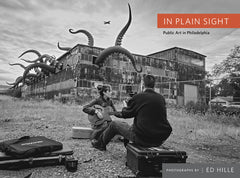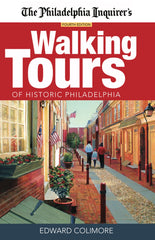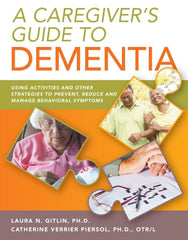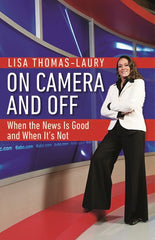Unconventional Wisdom: How Two of America’s Top Trial Lawyers Win Cases
This book was written for trial lawyers who handle wrongful injury cases. It’s about how to achieve great results for your clients.
Sure, most cases are settled, not tried. But to achieve the best settlement for your client, you have to be an able trial lawyer because it’s the apprehension of a big verdict that motivates opponents to settle. And trial skills are readily transferable to pre-trial skills, which help make cases better, whether or not they are eventually settled or tried. So excellent trial skills are indispensable.
First of all, this book is not about theory. It is about actual things that occur in a courtroom, or before or after trial. It is based on our combined 80-plus years of knowledge, most of it since 1995 when we formed the Philadelphia-based law firm of Kline & Specter, PC, now the largest plaintiff’s firm in Pennsylvania and one of the largest in the country.
Second, this book often stands conventional wisdom on its head. Partly that’s because some conventional wisdom was never right. Partly that’s because as society, the law, and technology have evolved, time has upset many courtroom truisms.
This book teaches what we believe works best in civil litigation and why.… But we don’t profess to know everything; every case and every situation is different, requiring different strategies for achieving a successful resolution. As we’re fond of noting: “You learn half of what you need to know in your first year as a lawyer and half of each remaining half in each successive year. You never learn it all.”
Robert Zausner is a former journalist with the United Press International and The Philadelphia Inquirer. He is the author of Two Boys: Divided by Fortune—United by Tragedy; Bad Brake: Ford Trucks—Deadly When Parked; Danger Above: A Tragic Death, an Epic Courtroom Battle; and Dying to Have a Baby: A True Story.
Table of Contents
-
Foreword
-
PART ONE: PRE-TRIAL
- The importance of a great mentor, and partner
- When you should take a case, or not
- How to hire experts
- Should you re-use the same experts?
- Should you get all the relevant documents before conducting discovery?
- Preparing, or not preparing, a witness for deposition
- Deposing experts—theirs
- How to do witness depositions
- What to do when your opponent takes your client’s deposition
- Deposing a dying client
- How to refer to an “independent medical examination”
- How to read beneath correction fluid
- Should you bifurcate a case?
- On giving and getting (with other lawyers)
- What to wear to court
- On exhibits, sometimes it’s good to go old-school
- Jury trial vs. bench trial
- On asking the boss for advice
-
PART TWO: JURY SELECTION
- Go for smart jurors
- Getting leaders on a jury (and keeping biased jurors off)
- Voir dire—brief is better
- Should you bring your client to voir dire?
- Should you use jury consultants?
- On jury consultants, continued
- Fixing a slip-up in jury selection
- Pre-trial motions
-
PART THREE: TRIAL
- Fear not trials during a pandemic
- How to prepare an opening speech
- How to avoid traps inherent in opening speeches
- What to show jurors
- How to ask a question
- Don’t be afraid of anyone, even a judge
- Should you always try to reduce expert costs?
- When to ask a witness: “Are you embarrassed?”
- On having clients always tell the truth
- Mediation
- Should you accept a high-low agreement?
- Settling a case
- Risk tolerance
- The 10/90 perspective
- Getting authority
- Should you make a settlement demand?
- Be diplomatic (but anger is OK)
- Email me
- More than just money
- When’s the right time to bring safety improvement into settlement talks?
- When to forget the bravado
- After settling, when should you expect to be paid?
- Should you hire focus groups?
- On beating Goliaths
- Stand by your stand
- Thank-yous
- Should lawyers “dumb it down” so that jurors understand complex cases?
- Reopening direct (forgotten questions)
- Don’t fight every issue
- Avoiding appeals
- As on cross
- “Is it fair to say?”
- Direct examinations
Cross-examinations: part 1
Cross-examinations: part 2
Cross-examinations: part 3
Cross-examinations: part 4
Leading questions
Cross-examinations: part 5
Cross-examinations: part 6
Redirect, recross
Cross-examinations: part 7 - Ask questions when you don’t know the answer
- On emotion
- SEE (Sleep, Eat, Exercise)
- “Believes”
- Humor, as a release
- How to use time to your benefit
- Closing speeches
Closing speeches: poetry
Closing speeches: making it personal
Closing speeches: time restraints
Closing speeches: emotion
Closing speeches: be creative - Punitive damages
- Asking for a mistrial
- Rebuttals
- Can you predict a jury?
-
PART FOUR: POST-TRIAL/MUSINGS
- On talking to jurors post-verdict
- Settling post-verdict
- Going to the media
- Roles the news media can play
- News releases: a how-to
- Handling disappointment
- Self-reflection
- Persistence
- How to get a job you really like
- On teaching, and learning
- Laugh and be happy
-
Index














